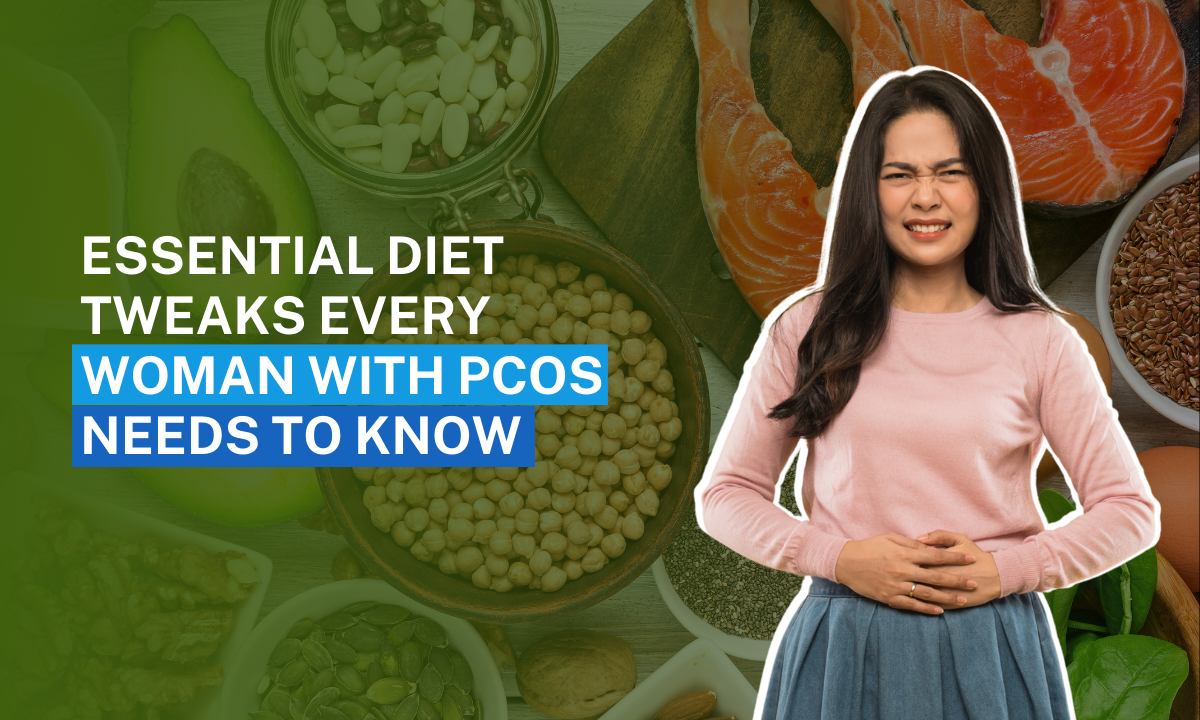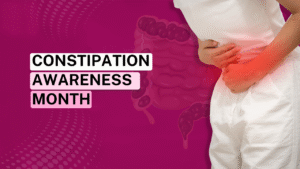Polycystic Ovary Syndrome (PCOS) is a complex hormonal condition affecting millions of women worldwide. It is characterized by the absence of ovulation, an excess of androgens, and the presence of polycystic ovaries detected via ultrasound.
Insulin resistance (IR) is a key pathophysiological feature of PCOS, contributing to hyperandrogenism and worsening its clinical presentation. Lifestyle changes serve as the first line of treatment for managing PCOS. Below are some essential diet tweaks every woman with PCOS should know.
1. Prioritize a Low-Carbohydrate Diet
Insulin resistance is common in PCOS, and high insulin levels can exacerbate symptoms like weight gain and irregular periods. The body breaks down all carbohydrates into glucose or fructose (from fruits). Excess glucose and circulating insulin promote fat storage. Additionally, carbohydrates have low satiety, leading to overeating.
2. Good-Quality Protein Intake
Insulin resistance may reduce satiety in women with PCOS, leading to overeating and weight gain. Protein helps regulate hunger hormones and supports weight management—an essential goal for PCOS. Include lean protein sources like eggs, chicken, fish, and paneer in your diet.
3. Include Healthy Fats
Incorporate foods rich in omega-3s, such as chia seeds, walnuts, and fatty fish. Use healthy fats like avocado, nuts, seeds, and olive oil in your cooking to support hormonal balance.
4. Get Enough Fiber
Fiber improves digestion and regulates blood sugar levels. Eat plenty of fiber-rich vegetables like broccoli, spinach, and carrots to aid digestion and overall metabolic health.
5. Stay Hydrated
Proper hydration supports overall health and helps manage PCOS symptoms. Aim to drink at least 2–3 liters of water daily. Replace sugary drinks with herbal teas or infused water. Monitor your urine color—it should be pale yellow to indicate proper hydration.
6. Incorporate Supplements Wisely
Certain supplements can help manage PCOS symptoms effectively. Many women with PCOS are deficient in vitamin D, which plays a crucial role in hormonal regulation. Other supplements, such as omega-3, B12, and magnesium, may also be beneficial but should be taken only after consulting a healthcare professional.
7. Manage Stress with Mindful Eating
Chronic stress worsens PCOS symptoms by increasing cortisol levels. Practice mindful eating by focusing on your meals and chewing slowly. Engage in stress-relieving activities like yoga, meditation, or journaling to support overall well-being.
Conclusion
Living with PCOS may feel overwhelming, but small dietary changes can have a significant impact on your symptoms and overall health. Start with these tweaks, listen to your body, and seek guidance from a nutritionist if needed. Remember, you’re not alone—managing PCOS is a journey, and every step you take brings you closer to balance and well-being.
Prachiti Mali, Clinical & Sports Nutritionist
REFERENCES
- Cowan S, Lim S, Alycia C, Pirotta S, Thomson R, Gibson-Helm M, Blackmore R, Naderpoor N, Bennett C, Ee C, Rao V, Mousa A, Alesi S, Moran L. Lifestyle management in polycystic ovary syndrome – beyond diet and physical activity. BMC Endocr Disord. 2023 Jan https://pmc.ncbi.nlm.nih.gov/articles/PMC9841505/#:~:text=In%20women%20with%20PCOS%20higher,rich%20in%20glucose%20%5B88%5D.
- Günalan E, Yaba A, Yılmaz B. The effect of nutrient supplementation in the management of polycystic ovary syndrome-associated metabolic dysfunctions: A critical review. J Turk Ger Gynecol Assoc. 2018 Nov 15;19
https://pmc.ncbi.nlm.nih.gov/articles/PMC6250088/#:~:text=Inositol%2C%20vitamin%20A%2C%20carnitine%2C,to%20metabolic%20and%20reproductive%20parameters.





